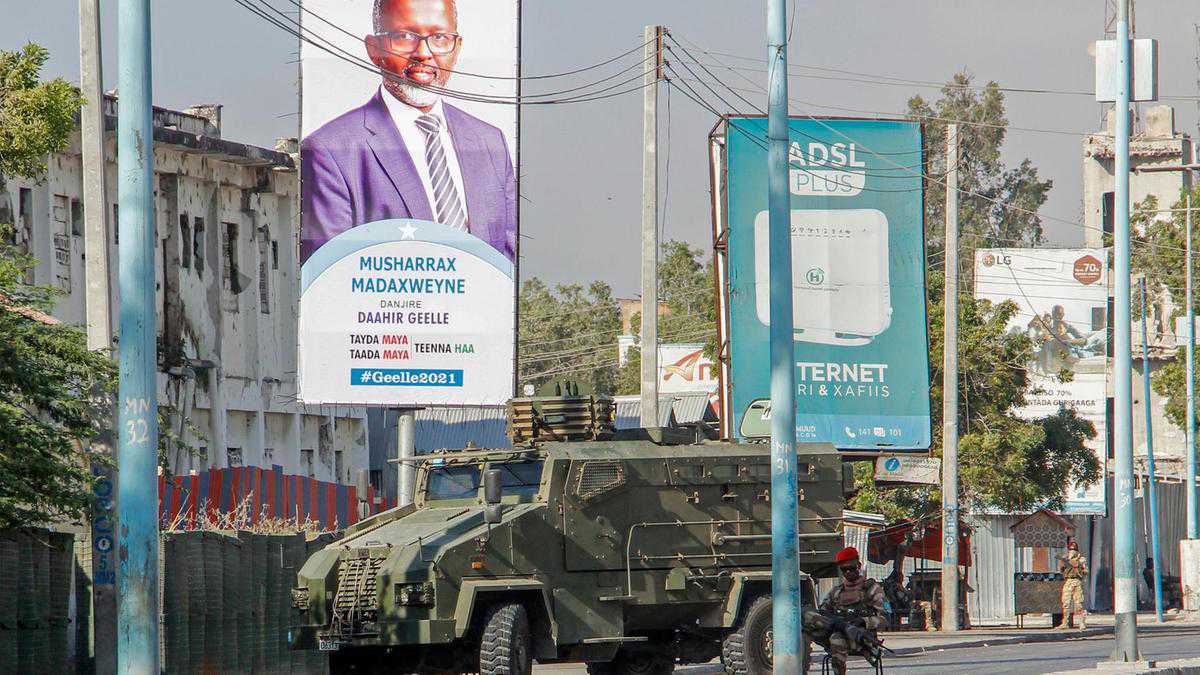Somalia’s Farmajo has to break election deadlock, says US
23 February, 2021

The US on Mon urged Somalia’s president and his political rivals to break a deadlock and hold elections prior to the country is engulfed by worsening violence from an extremist insurgency.
At UN Security Council talks, US envoy Richard Mills called for a swift image resolution to the political crisis encircling President Mohamed Abdullahi Mohamed, referred to as Farmajo, whose term expired this month.
Somalia’s parliament was place to pick a new president in February 8, but voting was delayed because latest members of the legislature had but to be chosen. Opponents of Mr Mohamed, who seeks another term, say he packed decision-producing bodies with loyalists.
“We ask President Farmajo and Somalia’s federal government member state leaders to do something swiftly to solve the political impasse that threatens Somalia’s long term and to find an arrangement to permit the conduct of parliamentary and presidential elections immediately,” Mr Mills said.
The US envoy’s comments were one of the primary on Somalia from the month-old administration of President Joe Biden, but didn't indicate whether Washington would pursue the prior Trump administration’s bid to withdraw US forces from the nation.
The deadlocked political transition has stoked tension in Somalia, which includes been ravaged by decades of civil war and drought and which still battles an insurgency by Al Shabab, an extremist group that frequently stages attacks in the administrative centre Mogadishu and elsewhere.
Officials found in two of Somalia’s semi-autonomous regions - Jubbaland and Puntland - expressed concern above the expiration of Mr Mohamed’s term and suggested he ought to be barred from the procedure.
Federal government forces and supporters of opposition numbers exchanged gunfire found in Mogadishu on Friday in a protest against the stalled vote. Rival presidential prospects have called for more rallies until a new leader is selected.
Mr Mills urged Somalia’s feuding factions to “endorse the recommendations” of a committee that the other day proposed technical answers to the crisis and also ensure that women played a larger part in Somalian politics.
“Let me come to be clear: partial parallel or perhaps alternative election processes, incorporating prolonged interim governing arrangements, is only going to further increase leads for instability and become a significant setback for Somalia,” this individual said.
Somalia had planned to carry elections to pick a good president and representatives found in what would have been the country’s first direct vote since a good civil war erupted found in 1991 and toppled the long-standing up dictator Siad Barre.
But planning for a standard election was marred by delays when the united states faced a spike found in Al Shabab raids, and the procedure was switched instead to an indirect vote where representatives are selected by a group of elders and others.
“Developing political tensions threaten Somalia’s state-establishing progress and even secureness unless they happen to be resolved through dialogue and compromise in the benefit of the country,” James Swan, the UN peace envoy to Somalia, said.
“Unfortunately, instead we are looking at increased brinkmanship, pressure strategies and tests of durability that may only heighten risks.”
Source: www.thenationalnews.com
